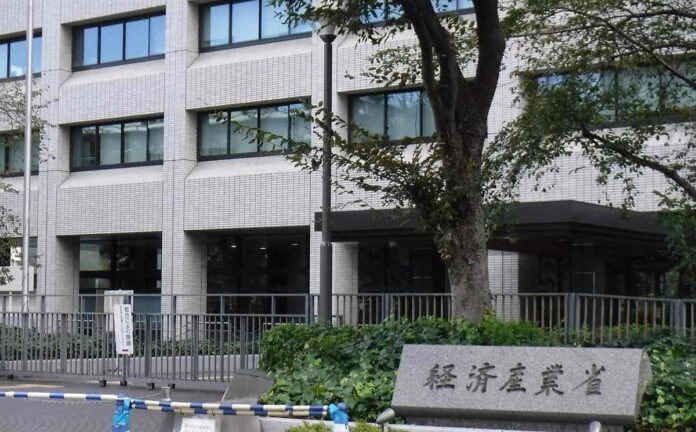The Ministry of Economy, Trade and Industry building in Chiyoda Ward, Tokyo
6:00 PM JST, June 3, 2024
BRUSSELS – Japan and the European Union are expected to agree on setting common rules for procurement in low-carbon sectors such as wind, solar and hydrogen.
In concrete terms, the envisaged rules require that, in addition to price, other factors, such as the impact on the environment and human rights, are taken into account when purchasing solar panels and other products. Minister of Economy, Trade and Industry Ken Saito and European Commissioner for Energy Kadri Simson were expected to conclude the agreement in Tokyo.
Such an agreement was concluded to reduce excessive dependence on specific countries – with a focus on cheap Chinese products – from the perspective of economic security. The rules will be shared at the Group of Seven summit, with the aim of establishing them as international rules.
A joint statement from Japan and the EU is expected to express deep concerns about “weaponized economic dependencies,” a practice in which certain countries make others dependent on strategic goods such as solar panels through “market-distorting subsidies.”
As a countermeasure, rules will be established in the field of solar, wind and hydrogen decarbonization regarding the confirmation of unfair government subsidies, independence from specific countries, safety and attention to the environment and human rights.
A working group will soon be formed to discuss the details, expanding agenda items beyond the three areas mentioned to include semiconductors and electric vehicles.
China has inflated the competitiveness of its own products in the decarbonization sector by injecting excessive government subsidies. In Europe, Chinese solar panels dominate the market, and the presence of Chinese products in the field of wind energy and hydrogen is also increasing.
A senior European Commission official said many companies have been displaced by heavily subsidized Chinese companies. The committee is investigating the existence of subsidies for Chinese-made electric vehicles, solar panels and wind energy.
Japan and Europe agree on the concept of reducing dependence on China for strategic goods and key technologies. The United States, which will hold presidential elections in November, has increased its opposition to China. Japan and Europe, on the other hand, will emphasize promoting fair competition.
Japan and the EU are likely to agree to draw up a joint roadmap for hydrogen use by 2040, including plans to enshrine it as international rules.



